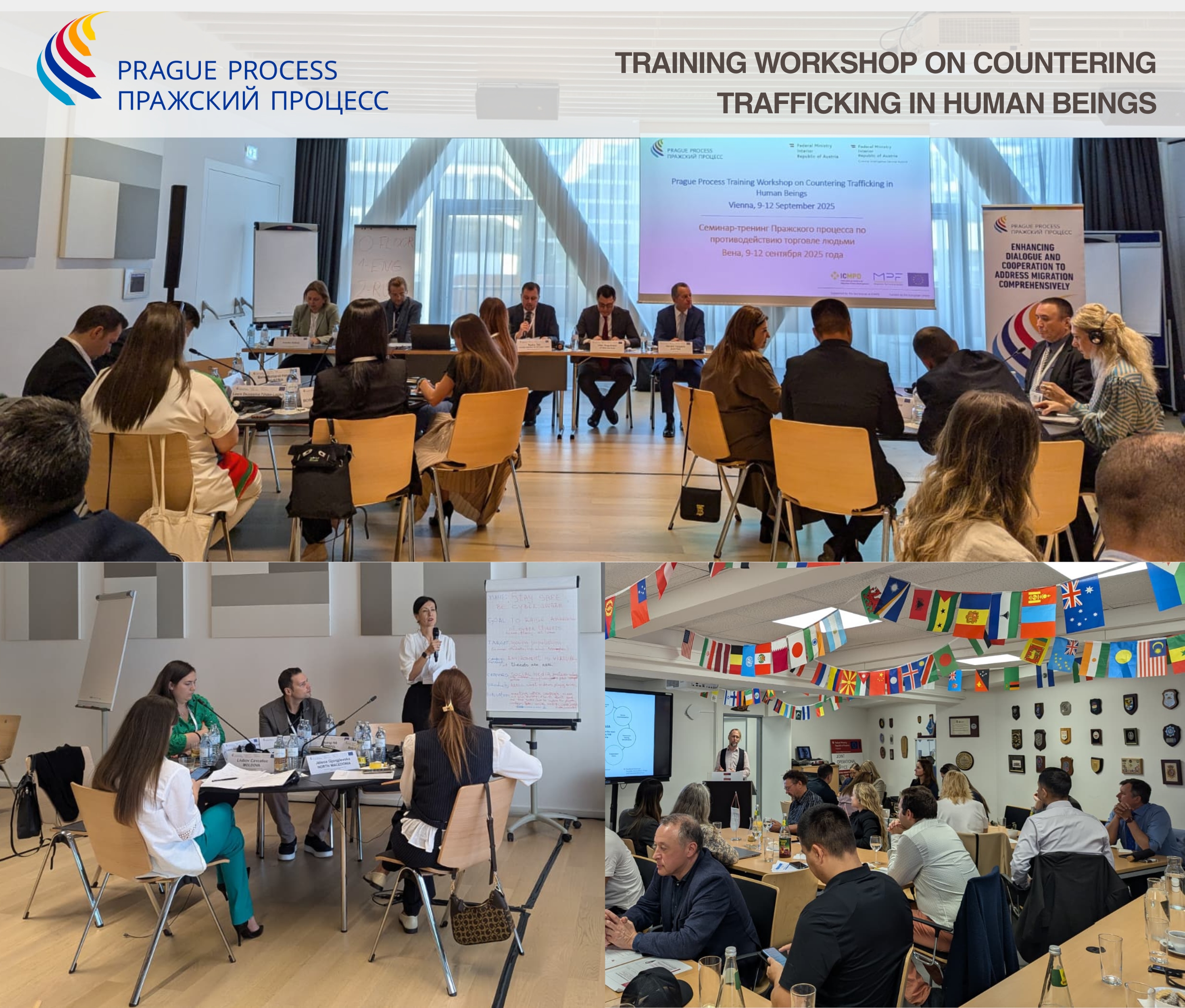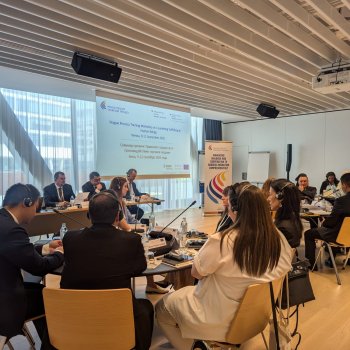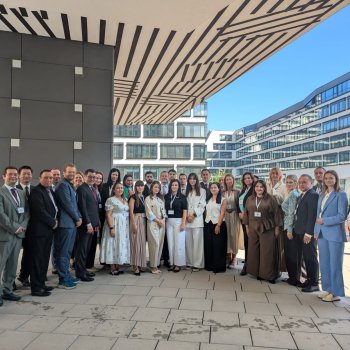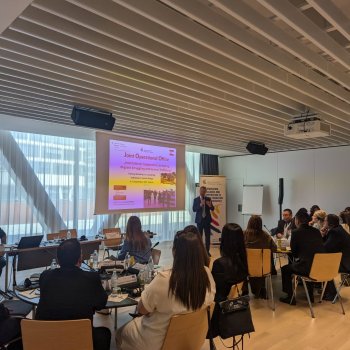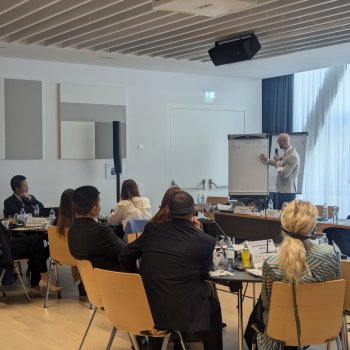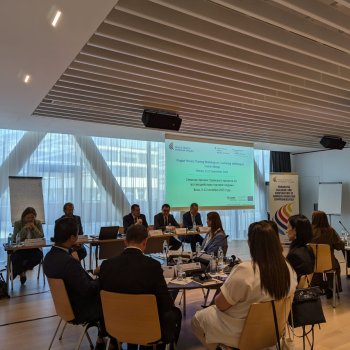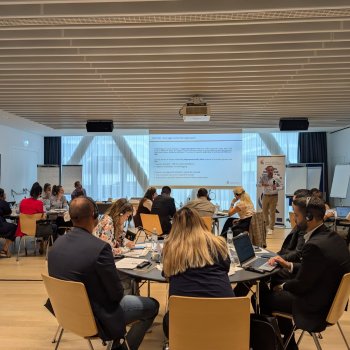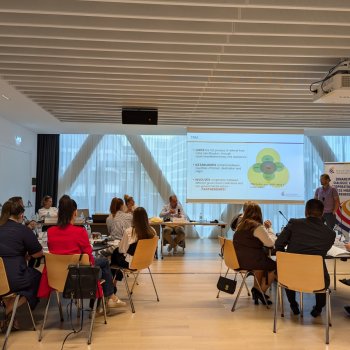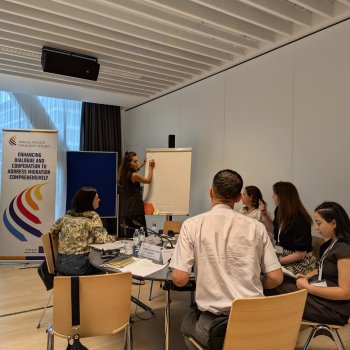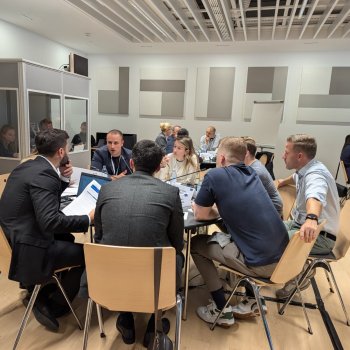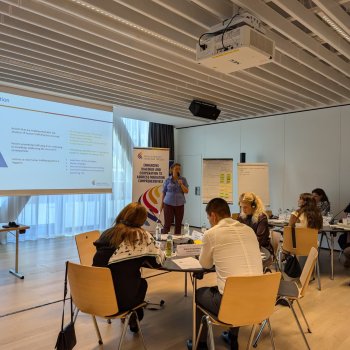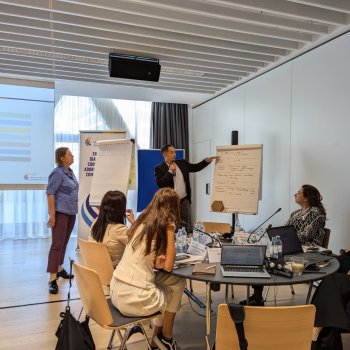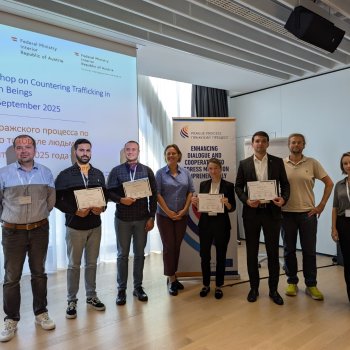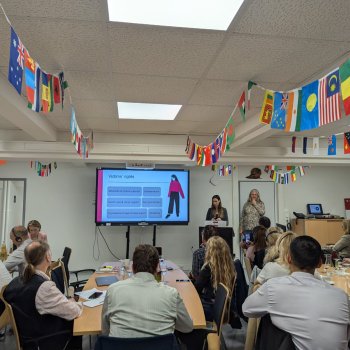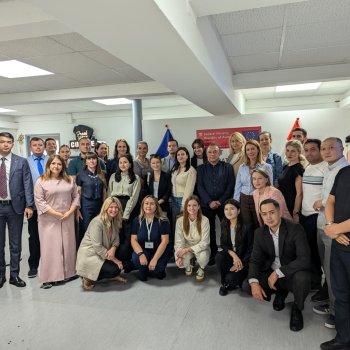The Prague Process Training Workshop on Countering Trafficking in Human Beings, held on 9-12 September 2025 in Vienna, convened more than 40 experts and practitioners from 18 participating states, together with representatives of INTERPOL, OSCE and ICMPD. Over three and a half days, the programme examined trafficking dynamics in the wider migration context, with focused sessions on labour exploitation, technology-facilitated trafficking, referral mechanisms, and prevention and communication.
The Training Workshop formed part of the activities of the Prague Process Training Academy and Thematic Component 1 on Fighting Irregular Migration and Migrant Smuggling, co-led by Hungary and the Kyrgyz Republic. It was designed in cooperation with ICMPD’s Anti-Trafficking Expert Team. The Joint Operational Office (JOO) of the Criminal Intelligence Service of Austria contributed operational insights and hosted a study visit on the final day. An evening programme arranged by the Austrian hosts featured a panel with Vienna-based organisations assisting victims of trafficking.
Opening focus: victim-centred, multi-agency responses
Opening remarks from Gerald Tatzgern (Head of JOO), Ulan Nogoibaev (Co-Lead of Thematic Component 1, Kyrgyzstan), and Radim Žák (Head of the Prague Process Secretariat) underscored the persistence and evolution of trafficking methods, the importance of cross-border cooperation, and the need to place victims’ rights and safety at the centre of responses. Austria’s approach, presented during the first sessions, highlighted close coordination among law enforcement, labour inspectorates, NGOs and the judiciary, as well as practical arrangements for rapid information exchange and interpretation.
Technology-facilitated trafficking and digital forensics
A dedicated block addressed cyber-enabled trafficking, including recruitment via social media, trafficking into online scam centres, and the use of digital forensics to secure evidence. Inputs from INTERPOL and Austrian cybercrime specialists covered immediate actions at crime scenes, recovering data from damaged devices and vehicles, and tracing cryptocurrency transactions. Discussions stressed that online trends reshape both offender tactics and victim vulnerabilities, calling for skills development and standard operating procedures that keep pace.
Referral mechanisms and case-based exercises
Building effective National and Transnational Referral Mechanisms emerged as a central theme. Presentations illustrated how clear roles, trusted contacts and tested procedures improve identification, assistance and continuity of protection across borders. In group exercises, participants worked through cases involving labour exploitation, organ removal in a migration context, and technology-facilitated trafficking, mapping responsibilities across identification, assistance, investigation and prosecution. Proposed improvements included joint investigation teams, stronger labour inspectorate-police cooperation, systematic use of financial intelligence, and more consistent legal definitions.
Prevention and the role of media
The third day turned to prevention. Facilitators distinguished between actions to prevent trafficking before it happens, to stop escalation, and to support recovery and prevent re-trafficking. Participants designed campaign concepts targeting at-risk groups with proposals ranging from hotlines and employer checklists to journalist initiatives that encourage survivor-sensitive reporting. National examples from across the region showcased practical steps such as materials at border points, outreach through faith and community leaders, and use of international anti-trafficking days to sustain visibility.
Field insight: NGO perspectives
On the final day, the visit to the JOO offered a closer look at the work of non-governmental organisations. Two Austrian NGOs – LEFÖ and MenVia – outlined their victim-centred services for women and men affected by trafficking, emphasising access to safe accommodation, psychosocial support, legal aid, healthcare and residence permits, as well as the importance of non-punishment, reflection periods and compensation.
The training closed with a strong message: combating trafficking in human beings requires united efforts across borders, sectors, and genders, with survivors’ dignity and recovery at the heart of every action.

